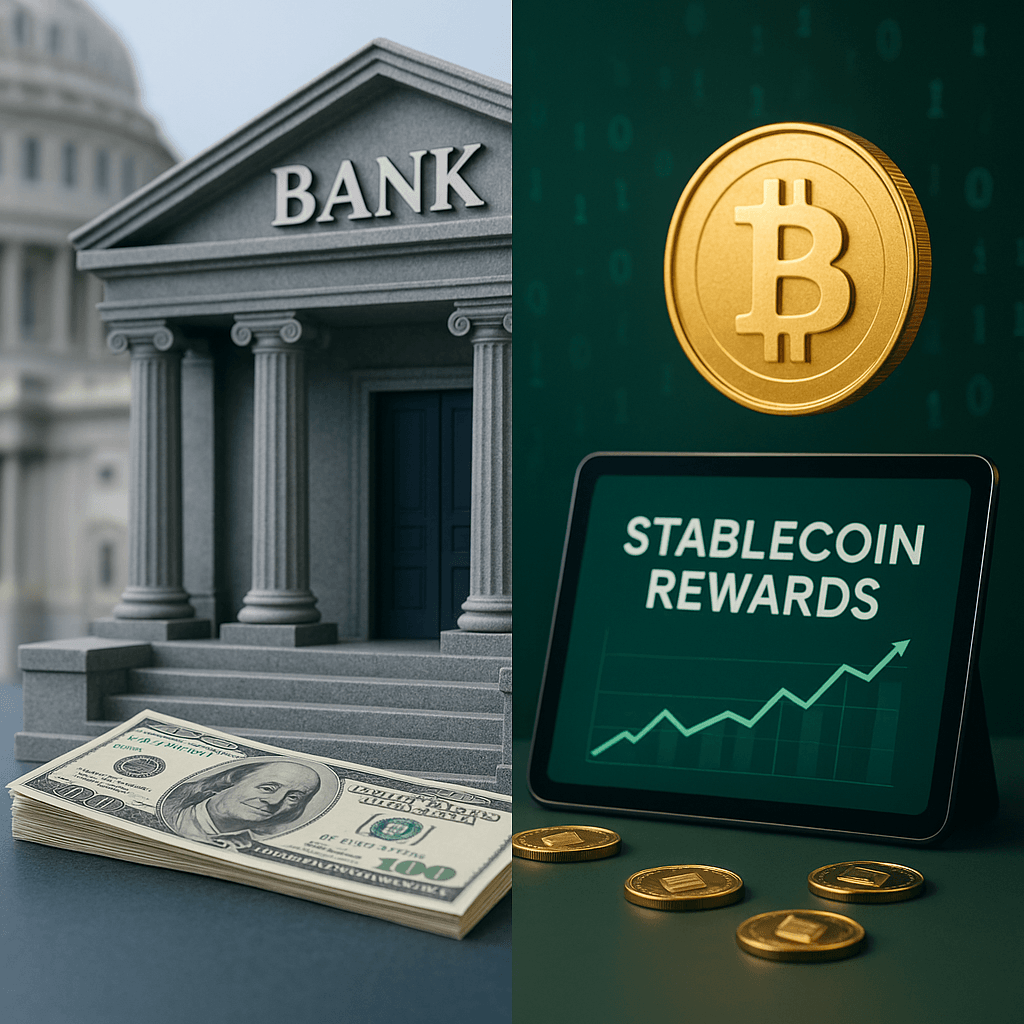A high-stakes regulatory battle is brewing on Capitol Hill as Coinbase CEO Brian Armstrong accuses traditional banks of using 'boogeyman' tactics to kill stablecoin rewards that currently offer customers up to 5.5% returns. With potentially $6.6 trillion in deposits at risk of fleeing to crypto, banking groups are pushing lawmakers to ban these rewards entirely.
The gloves came off this week as Coinbase CEO Brian Armstrong took his fight directly to Washington, accusing big banks of manufactured fear-mongering over stablecoin rewards. Speaking to CNBC after meetings with Senate Republicans, Armstrong dismissed banking industry warnings as nothing more than a 'boogeyman' designed to protect their lucrative payments business.
The numbers tell the story of why banks are panicking. Coinbase currently offers 4.1% rewards on USDC stablecoin holdings, while competitor Kraken pushes that to 5.5% - rates that make traditional savings accounts look prehistoric. The Treasury Borrowing Advisory Committee dropped a bombshell estimate in April: $6.6 trillion could migrate from bank deposits to stablecoins if these reward programs gain traction.
'I'm not sure why the banks would want to bring that up again at this point, but they should have to compete on a level playing field in crypto,' Armstrong told reporters Wednesday. His frustration stems from what he sees as regulatory capture - big banks using their lobbying muscle to kill competition rather than innovate.
The banking industry isn't going down without a fight. John Court, executive VP at the Bank Policy Institute, painted a dire picture during congressional hearings: 'If people are pulling their deposits out of their bank accounts and transferring them into stablecoin investments, you are effectively neutering, to some degree, the ability of the banks to continue to lend into the real economy.'
But Armstrong fired back with his own theory about banks' true motivations. 'The real reason that they're bringing this up as an issue is that they're trying to protect the $180 billion that they made on their payment business,' he said. 'This is something that big banks are funding behind the scenes. It's not small banks whatsoever.'
The regulatory landscape got murky with the recently passed GENIUS Act, which technically prohibits customers from earning 'interest' on stablecoins while allowing crypto exchanges to offer 'rewards' - a distinction that's proving legally significant but practically meaningless to consumers getting paid either way.











